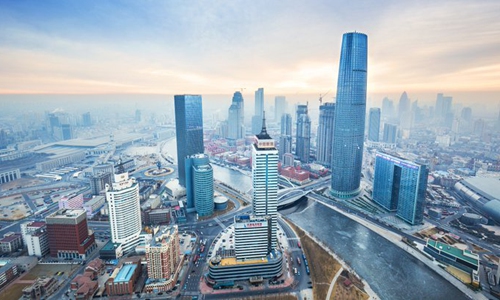An opinion piece published by The Wall Street Journal featuring the insulting headline “China is the real sick man of Asia” is shockingly sinister. It is hard to believe that a so-called distinguished scholar could openly use a term so heavily loaded as “sick man of Asia” during this challenging time for China.
The title is intended to be shocking, to draw readers into an article full of fear-mongering rhetoric and groundless “China collapse” theories.
The article itself shows the author’s own prejudiced views of China and doesn’t warrant much attention, but the article is emotionally and objectively unacceptable to the Chinese people amid their fight to control the novel coronavirus.
China’s development has long been accompanied by conspiracy theories about its economy’s collapse, though anti-China voices have been consistently proven wrong. And this time will be no exception.
While such “China collapse” rhetoric cannot change the nature of the Chinese economy, it may affect expectations, which is why it is still necessary to discuss how to understand the Chinese economy – particularly under the current circumstances.
Practically speaking, the outbreak does have an impact on the Chinese economy. But the epidemic is not over yet, so it is too early to say what kind of changes the economy will undergo. We’ve already said in our previous research report that the novel coronavirus is actually a flu-like epidemic, and its severity has been overestimated by the World Health Organization and others, which has created panic to a certain extent.
As for China’s financial system, there is indeed risk. But what country’s financial market is risk-free? Finance is risky business.
And I don’t think there is panic over a China collapse in global markets. As we all know, China’s growth rate has slowed to a relatively low level, which is normal with cyclical economic changes in a big country. Highs and lows form a complete cycle, and there will be another climb after the drop. International markets must adapt to the transition and slowdown of the Chinese economy. It is unrealistic to think that China can always be a productive society, a factory of the world and a source of continued profits.
The foundation of the Chinese economy has changed, which hasn’t been fully recognized either domestically or internationally. The biggest change is that China has shifted from a purely productive society to one supported by production and consumption.
Failing to understand such changes, many still compare China to India and understand China through its old framework. Such a mindset is bound to cause all sorts of misunderstandings.
The article was compiled based on an interview with Chen Gong, chief research fellow with Beijing-based private strategic think tank Anbound. bizopinion@globaltimes.com.cn
Photo:VCG



